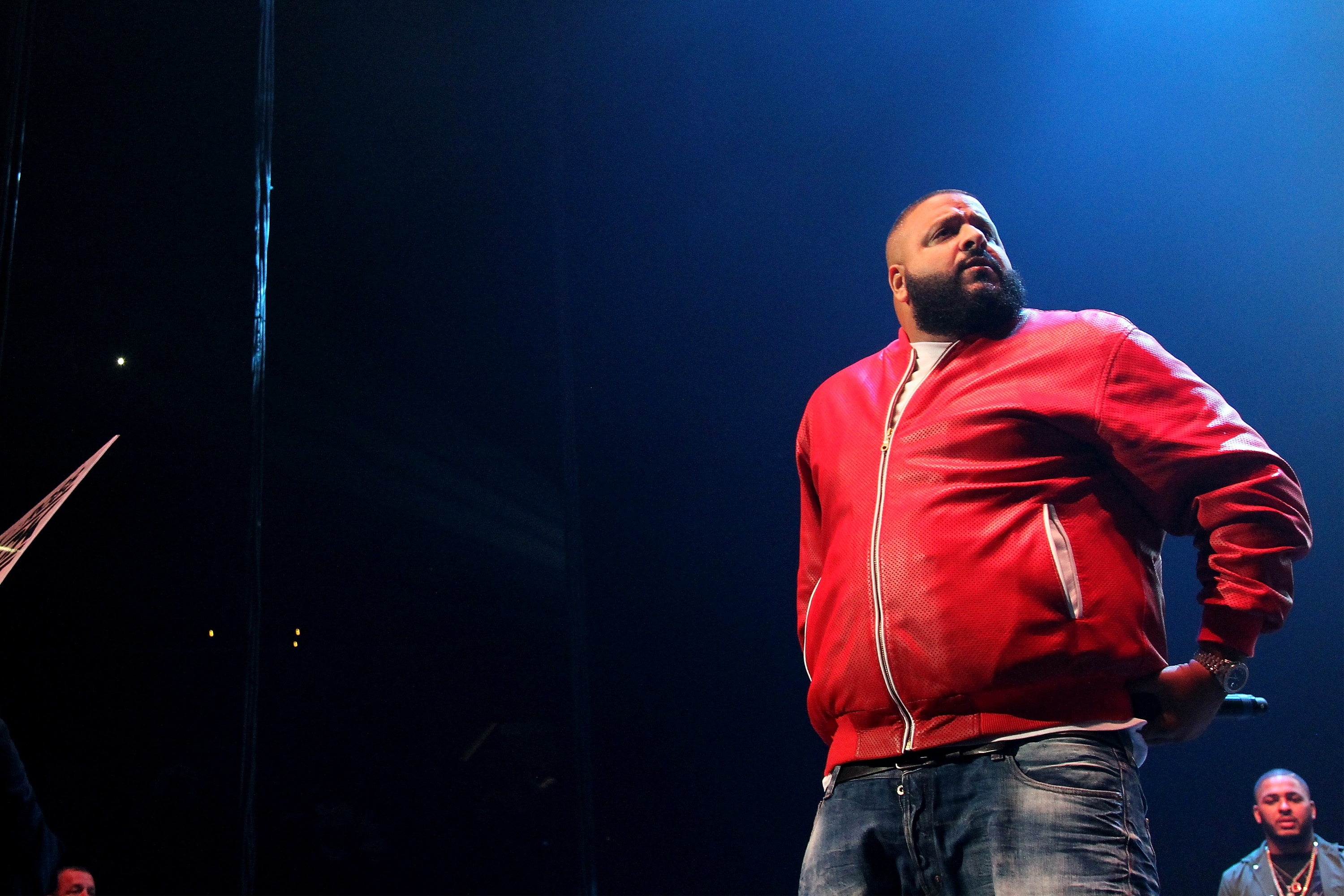Release Date: October 23, 2015
Label: We the Best / RED / Sony Music
How does one review a DJ Khaled album? How do you apply numbers — mere digits which adhere to the rules of mathematics — to DJ Khaled, a being who heeds neither the laws of man nor those of nature? Do you even listen to it? It’s not like DJ Khaled honestly cares if people to listen to I Changed a Lot, his eighth album in nine years. To Khaled, albums are simply products of generic grinding and nonspecific perseverance, lumps of aspirational coal hardened into diamonds of success inside the tight asshole of Horatio Alger. Khaled expects us to buy his albums as a reward for his hard work (more on that in a sec), but actually listen to the things all the way through? To paraphrase the late Lou Reed, “Anyone who gets to side four is dumber than I am.” Are we dumber than Khaled is?
DJ Khaled doesn’t rap, doesn’t produce; he just curates the lineup of each track, yells some stuff, then asks to get paid for it. This isn’t unprecedented by any means — guys like DJ Clue?, Funkmaster Flex, DJ Kay Slay, and even DJ Drama have been sourcing others’ original beats and pairing them with verses from some of hip-hop’s biggest names for years. The level of disappointment and mediocrity that Khaled’s albums achieve is well within this pre-established template: After all, the final OutKast song ever officially released was on a DJ Drama album, even if we pretend the last thing they did as a group was “International Players Anthem.”
https://youtube.com/watch?v=Gvsao2_jsNk
Regardless of history giving him the benefit of the doubt, the ostensible draw of a DJ Khaled album — unexpected collaborations, huge beats in which huge claims are levied by (often) physically huge men — has effectively been rendered moot in the age of streaming music. Khaled is a bundler, and streaming music represents the Great Unbundling of the album format. To wit: Why should someone pay money to buy a CD just to get access to a track like the admittedly excellent posse cut “I Ride,” which groups Boosie BadAzz and Future with erstwhile enemies Rick Ross and Jeezy, when they could just go to Spotify, plug the track into their own playlist, and disregard the chaff?

Also Read
KEEPING IT REAL — ROUND ONE!
Without reprogramming the entire back-end of the site, properly rating a Khaled album with both a ten and a zero simultaneously would exceed the limitations of the SPIN content management system, so a six will have to suffice. I Changed a Lot deserves a zero because it can never be good as DJ Khaled’s Instagram account, or his pronunciation of the word “jewelry” as “jurly,” or his profoundly awkward interview with Larry King, or this video of him going to the Bahamas which features him popping a champagne bottle the size of a third-grader, or the shot of him sullenly drinking Four Loko on a balcony in the “I’m on One” video, or the clip of him accusing the San Antonio Spurs of cheating in last year’s NBA finals by turning off the air conditioning in their arena to prevent the Miami Heat from attaining victory. Hell, the actual music on I Changed a Lot is a zero compared to the fact that its cover doubles as an advertisement for Finga Licking, which is a fried chicken restaurant that DJ Khaled apparently owns. But then I Changed a Lot deserves a ten because if DJ Khaled albums didn’t exist, then DJ Khaled has one less excuse to promote DJ Khaled. In the DayGlo, pro-wrestling world of mainstream hip-hop where an artist is only as good as the storylines backing them up, DJ Khaled is basically its Paul Heyman.
https://youtube.com/watch?v=fxPBu_vX9Q0
If I were listening to I Changed a Lot in a vacuum that was filled with only the seven other DJ Khaled albums (ignore that this would also raise the question of why I was listening to a DJ Khaled album literally anywhere that wasn’t a dollars-streaked strip club in Miami), I would admit that while it’s no We Global or even a We the Best Forever, it’s not without its own outrageous merits.
Many of those have to do with Future, still riding the wave of goodwill from his fantastic, banner 2015. He appears on five of the album’s 13 tracks and brings a certain drug-addled urgency to the record whenever he shows up, even if he’s just kicking a verse about going to the mall. Rick Ross, who at this point in their relationship is essentially DJ Khaled’s patronus, also shows up on five tracks. Between those two mainstays, French Montana, and Chris Brown, this ensemble has a certain consistency that one rarely finds on DJ Khaled albums. Then again, this is DJ Khaled we’re talking about here — do we necessarily want consistency? Consistency breeds complacency; complacency breeds Big Sean verses; Big Sean verses breed referencing the Catalina Wine Mixer on “How Many Times,” which is the opposite of what anyone needs, ever.
DJ Khaled’s albums, at their best, are the logical conclusion of Rap as Fake Sport: measuring who had the best verse, who dropped the most outlandish line, whose hook had you singing along most immediately. The jaw-dropping boasts and displays of braggadocio should come from every which way. You should never know what could be behind the next corner. On I Changed a Lot, we already know what’s around the next corner, and much of the time it’s more goddamn French Montana hooks.




